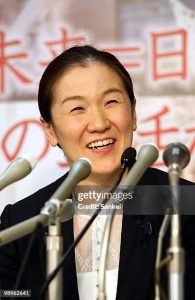
In recent months, several notable suspensions have rocked the world of judo, shedding light on the challenges the sport faces in maintaining fair play, integrity, and athlete welfare. The International Judo Federation (IJF) and national federations continue to enforce strict anti-doping policies, address misconduct, and uphold the values of sportsmanship that are central to the martial art.
One of the most high-profile cases in recent times involved the suspension of Russian judoka, *Kamil Zaretskiy*, who was found guilty of violating anti-doping rules. Zaretskiy, a promising competitor with aspirations for the Paris 2024 Olympics, tested positive for a banned substance during a competition in 2023. Following the mandatory investigation and hearings, he was handed a two-year suspension by the IJF. This incident has raised questions about the prevalence of performance-enhancing drugs in judo, with some critics calling for stricter measures and more transparency in drug testing.
Another significant case involved *Clarisse Agbégnénou*, one of France’s top female judokas and an Olympic gold medalist. Although Agbégnénou was not suspended, her brief absence from competition was due to a personal decision to step back after giving birth. During her time away, there were discussions about how the sport needs to better support female athletes who take breaks for family reasons. This led to calls for more inclusive policies, particularly in terms of suspension rules and post-pregnancy care, to ensure a level playing field for all competitors.
In terms of misconduct, the IJF recently imposed a temporary suspension on *Abdulla Ali*, an Emirati judoka, for unsportsmanlike behavior during an international tournament. Ali was accused of physically assaulting an opponent after the match had concluded. His actions were considered a breach of the IJF’s code of conduct, leading to his suspension from future international events until further investigation and sanctions are determined. This case underscores the IJF’s commitment to maintaining discipline and fair play within the sport.
Moreover, the IJF has been working with national federations to enhance education around ethical behavior, preventing match-fixing, and enforcing a zero-tolerance policy for any form of corruption or abuse. As a result, many national federations have updated their internal policies on suspension and disciplinary actions to align with the IJF’s global standards.
Looking ahead, the IJF is expected to continue monitoring athletes’ conduct and implement stricter regulations to prevent violations. With the 2024 Paris Olympics on the horizon, maintaining the integrity of judo remains a priority for the governing bodies, as they aim to ensure a fair and competitive environment for all athletes.





